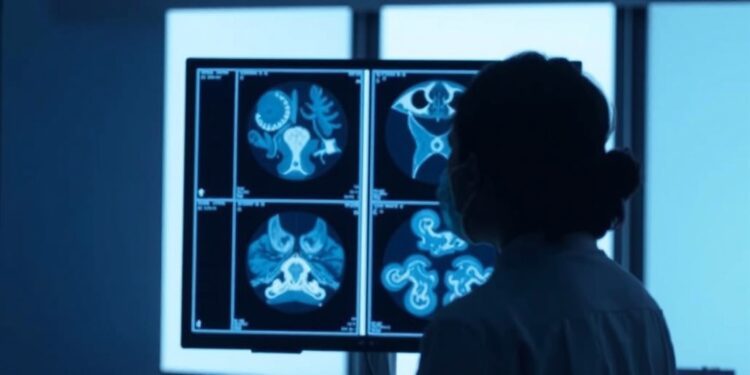
In a revealing study published in JAMA, researchers have illuminated a critical gap in patient understanding of prostate cancer pathology reports. Traditional pathology reports often present complex medical jargon that leaves many patients confused, unable to extract even the most basic information regarding their diagnosis. In contrast, patient-centered pathology reports (PCPRs) have been designed with an emphasis on clarity and usability, allowing individuals to better comprehend their health situation.
The findings indicate that study participants demonstrated a marked difficulty in understanding standard prostate cancer pathology reports. Issues arose predominantly due to the intricate language and format commonly employed in medical documentation, which can alienate patients rather than empower them. The inability to glean essential information can lead to increased anxiety and uncertainty among patients regarding their diagnosis and treatment options.
Conversely, those who received the newly formatted PCPRs found them significantly easier to interpret. This user-friendly initiative proved particularly effective in conveying critical diagnostic information related to prostate cancer. Not only did participants find the reports more comprehensible, but they also exhibited a marked difference in their perception of risk levels associated with their conditions. For instance, patients in low-risk categories attributed less worry to their situation when using PCPRs compared to the conventional reports.
The implications of these findings carry considerable weight for healthcare systems striving to enhance patient engagement and understanding. Misunderstandings stemming from traditional reporting methods could undermine patient trust and complicate the doctor-patient relationship. This is particularly important in oncology, where the emotional and psychological burden of a cancer diagnosis can be overwhelming.
By incorporating PCPRs alongside standard pathology reports, health institutions can facilitate a more transparent and supportive environment for patients. PCPRs have the potential to break down communication barriers, fostering a proactive approach to health management. The shift toward patient-centered communication models is essential for ensuring that patients feel informed and confident about their treatment paths.
Furthermore, the study highlights a broader issue within medical communications—the need for simplification and patient engagement in healthcare documentation. As healthcare continues to evolve with the integration of technology, it is crucial to prioritize clear, accessible language that resonates with diverse patient populations. This approach aligns with the growing emphasis on shared decision-making in medical practice, where patients are active participants in their health care choices.
Recent evidence suggests that when patients have access to user-friendly information, they are more likely to engage in their care actively. Their understanding of treatment options, adherence to prescribed therapies, and overall health outcomes improve significantly. The utilization of PCPRs is a step forward in promoting this culture of understanding and collaboration in healthcare.
In light of this research, medical professionals and institutions must reevaluate their communication strategies. There is an urgency to develop materials that are not only informative but also accessible to patients with varying levels of health literacy. As the healthcare landscape becomes increasingly complex, the onus is on practitioners to ensure that their patients are not left confused or anxious about their conditions.
In conclusion, the study serves as a powerful reminder of the importance of patient-centered care in the realm of oncology and beyond. As more healthcare providers acknowledge the distinct advantages of utilizing PCPRs, there is hope for a transformed healthcare experience where clarity prevails over confusion, and patients feel empowered rather than overwhelmed.
Efforts should be made to expand the application of the principles demonstrated in this research to other areas of medicine. Every patient deserves the right to understand their health without the shackles of medical jargon. A shift towards more intuitive communication strategies not only aids in informed decision-making but also enhances the overall quality of care.
This pivotal research thus propels the dialogue on healthcare communication forward, urging stakeholders to adopt innovative approaches that prioritize patient understanding. By fostering an environment where information is accessible and easily digestible, we pave the way for a healthier society, better equipped to face medical adversities with knowledge and determination.
As we look toward the future of medical reporting, the imperative remains clear: patient engagement should not be an afterthought but a fundamental component of healthcare delivery. The insights gained from this study can catalyze a broad transformation in how we approach patient information across disciplines.
Ultimately, the pathway to improving patient experiences in healthcare is grounded in empathy and clarity. With continued advocacy for patient-centered approaches, there is an opportunity to rekindle trust in medical systems, encouraging individuals to take charge of their health journeys.
In light of the findings on patient comprehension of prostate cancer reports, it is evident that embracing change within medical communications is not just beneficial—it is essential. Our commitment to fostering understanding, reducing anxiety, and building supportive patient-provider relationships will define the future of healthcare in profound ways.
—
Subject of Research: Patient understanding of prostate cancer pathology reports
Article Title: Understanding Prostate Cancer: The Impact of Patient-Centered Pathology Reports
News Publication Date: October 2023
Web References: Not applicable
References: Not applicable
Image Credits: Not applicable
Keywords: Prostate cancer, patient-centered care, pathology reports, medical communication, healthcare understanding, diagnosis comprehension, patient engagement, oncology.





